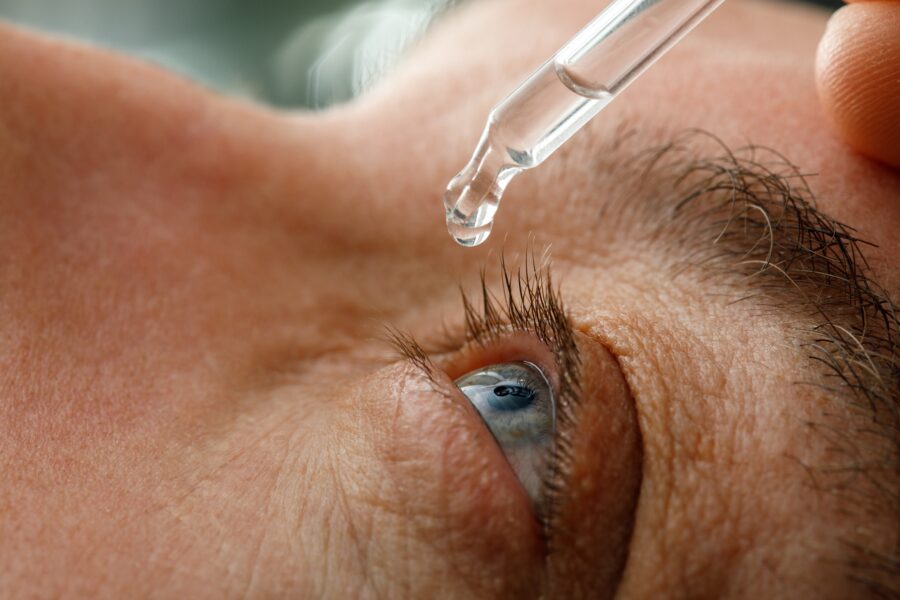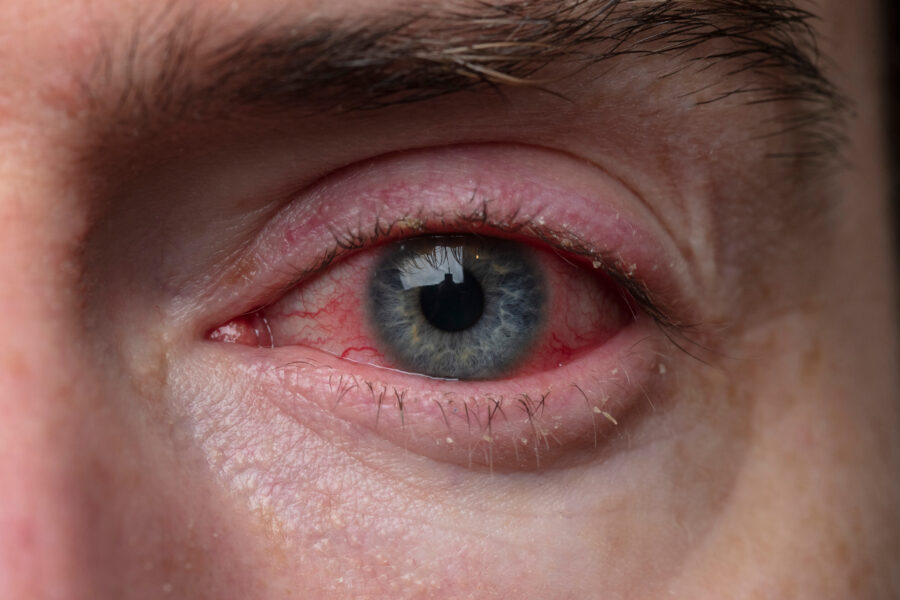Blog post
Myopia (short-sightedness): Signs, Symptoms and Treatments

Matthew Burford BSc(Hons) Optometry MCOptom - Domiciliary Optician and Professional Services Manager at OutsideClinic
3/4 minutes
What is myopia (short-sightedness)?
Myopia, often referred to as near-sightedness or short-sightedness, is a common visual condition classified as a refractive error. This means that the eye does not bend (or refract) light properly, causing images to be focused incorrectly.
In the case of myopia, light entering the eye is focused in front of the retina rather than directly on its surface, which is essential for clear vision. As a result, objects at a distance appear blurry and out of focus, whereas closer objects can be seen more clearly.
Myopia often occurs when the eyeball is elongated. This structural change is what causes light to focus in front of the retina. The severity of myopia can range from mild, with minimal impact on vision, to more severe cases where distance vision is significantly impaired.

What are the symptoms of myopia?
- Difficulty seeing distant objects: Myopia makes it hard to see faraway objects like road signs, whiteboards or scenery, especially during activities like driving or watching TV.
- Eye strain: Focusing on distant objects can cause eye fatigue and discomfort, particularly after prolonged tasks like presentations.
- Squinting: Squinting temporarily improves focus but may lead to discomfort over time.
- Headaches: Eye strain and squinting can result in tension headaches, especially after activities requiring clear distance vision such as driving.
What are the treatment options for myopia (short-sightedness)?
There are various treatment options for myopia, as it is a refractive error that can be effectively managed or corrected. These options include:
Glasses:
- A simple and non-invasive solution that uses lenses to refocus light onto the retina, providing clear vision. Glasses are widely used for correcting both myopia and other refractive errors, offering a variety of styles to suit personal preferences.
Contact lenses:
These sit on the surface of the eye and correct refractive errors, offering a wider field of view than glasses. Options include daily disposables, monthly lenses, rigid gas permeable (RGP) lenses for sharper vision and Ortho-K lenses worn overnight to temporarily reshape the cornea for daytime clarity.
Surgery:
- Permanent solutions like LASIK (laser eye surgery) reshape the cornea or place corrective lenses inside the eye. These procedures are suitable for moderate to severe myopia and are tailored to individual needs.
An eye care professional can help determine the most appropriate treatment based on the severity of myopia, age and lifestyle.

Can you prevent myopia (short-sightedness)?
Unfortunately, there is no definitive way to prevent myopia, however adopting certain habits can help manage its effects and support overall eye health:
- Follow a nutritious diet: Vitamins like A and C, along with nutrients like lutein, are essential for maintaining healthy eyes. Incorporate foods such as red peppers and squash into your meals. Learn more about the best foods for eye health.
- Have regular eye exams: Routine eye tests are crucial for identifying eye conditions early, even if your vision seems unaffected.
- Protect your eyes: Environmental factors can impact eye health. Use glasses with UV filters to protect against harmful sun rays and wear appropriate safety goggles for activities like DIY. Find more tips on keeping your eyes healthy.
- Lenses: Myopia typically develops fully by the age of 16, but it can be managed through myopia control options, such as prescribing corrective glasses or contact lenses early to help mitigate its effects.

What are the most common questions around myopia (short-sightness)?
What causes myopia (short-sightedness)?
Myopia is primarily influenced by genetic factors inherited from your parents. However, environmental factors such as prolonged screen time and limited outdoor activities are also believed to contribute to its development.
Can myopia (short-sightedness) be cured?
Unfortunately, no, myopia (short-sightedness) cannot be fully cured. However, there are preventative measures and recommended lifestyle changes that can help reduce its impact.
What does it mean to be short-sighted?
Being short-sighted, or having myopia, means you can see objects clearly when they are close but struggle to focus on objects in the distance, making them appear blurry.
Can you get glasses for myopia (short-sightedness)?
Yes, glasses are a great option for prevention and treatment. It's non-invasive and refracts the light onto your retina. It's also the most cost effective.

By Matthew Burford BSc(Hons) Optometry MCOptom - Domiciliary Optician and Professional Services Manager at OutsideClinic Post last updated 9th December 2025
Matthew graduated from Aston University in 2004 with a degree in Optometry.


